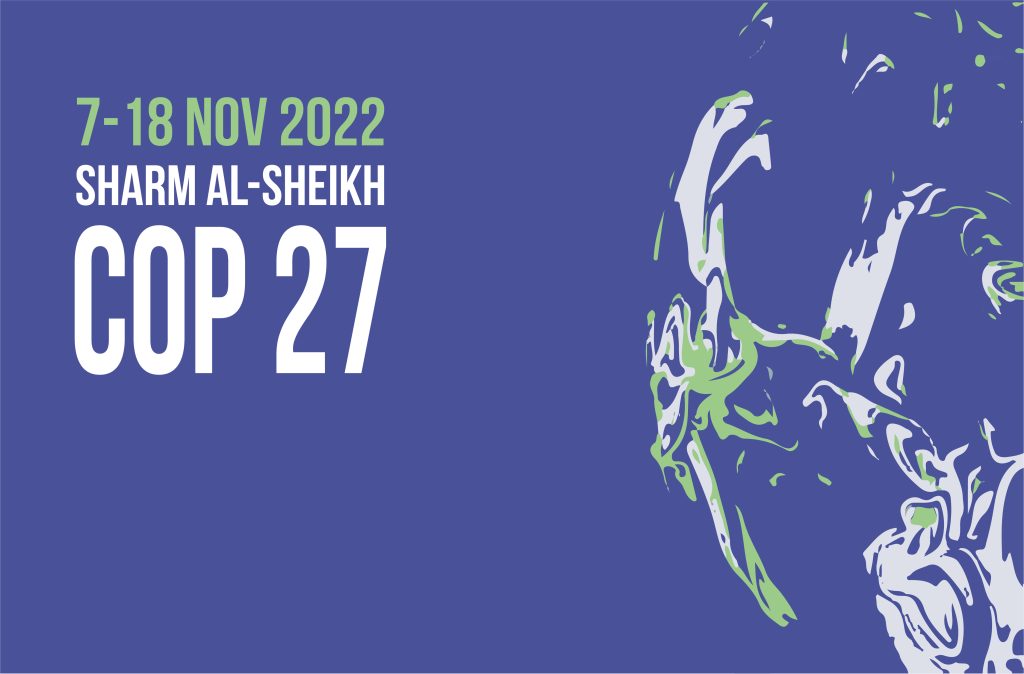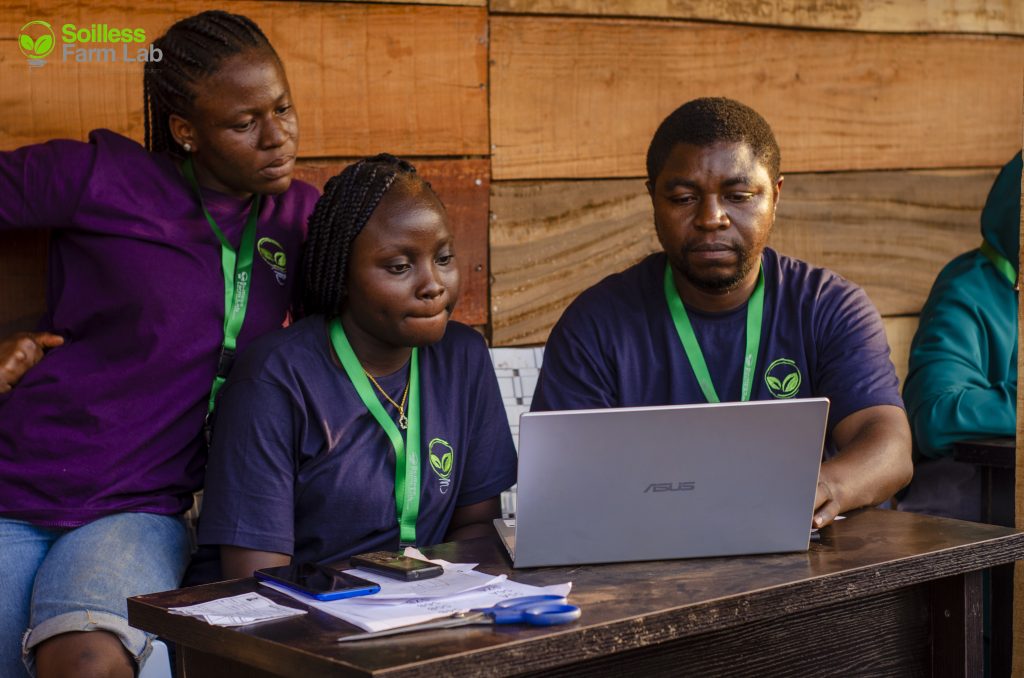The COP27 proceedings concluded on Sunday, 20th November in Sharm El-Sheikh, and communiques from all working groups are being finalised. In the meantime, draft versions are available for review, and the outlines of major decisions are becoming clear, as well as the major decisions that have been delayed for consideration until COP28 which will take place next year in Dubai. In today’s post, we will review some of the major decisions that were reached during this year’s proceedings, while also considering what steps are needed to achieve the goal of limiting the effects of climate change to 1.5 degrees centigrade.
Reaffirming commitment to 1.5 degrees
First, it’s important to recognize that the commitment to limiting warming to 1.5 degrees was not a forgone conclusion. There was genuine concern among many participants that the commitment to 1.5 degrees would be abandoned. Scientists consider 1.5 degrees to be the level at which we can avoid the worst impacts from climate change.
In order to achieve this target, we must drastically reduce our dependence on fossil fuels, beginning immediately. However oil producing countries and representatives from the fossil fuel industry who were present at COP27 resisted calls for reductions in the use of fossil fuels, and successfully kept any mention of limiting use of fossil fuels out of the final statements. Without a clear path forward on reducing the use of fossil fuels, the target of 1.5 is largely unachievable.
The compromise language that was finally agreed to instead focused on the reduction in harmful greenhouse gas emissions without addressing the underlying cause of those emissions, which is primarily the burning of fossil fuels. However, in the end – participants reaffirmed the commitment to 1.5 degrees, and that commitment is reflected in the draft statements.
The Revised Advanced Version of the Sharm El-Sheikh Implementation Plan which was distributed on November 20 reaffirms this commitment. The language in Paragraph 7, Section I on “Science and Urgency” states that the Conference of Parties “Reiterates that the impacts of climate change will be much lower at the temperature increase of 1.5 °C compared with 2 °C and resolves to pursue further efforts to limit the temperature increase to 1.5 °C”. The precise mechanisms for achieving this will be decided in subsequent discussions.

Lack of progress on phase out of fossil fuels
Overall, the conference was considered to be a disappointment when it comes to mitigating against the underlying causes of climate change. While there were commitments to reduce the use of coal, the final statements do not address the use of all other fossil fuels. Countries including India, the EU and its member states, as well as the US had been pushing for a more rapid transition to renewable sources of energy, and a phase out of all fossil fuels, with emissions peaking in 2025. The push for the rapid phasing out of fossil fuels was abandoned in order to not risk what was seen as the major accomplishment of the conference, which was the agreement on the creation of a loss and damage fund.
Agreement on creation of loss & damage fund
As we discussed in one of our earlier postings, the issue of compensation for loss and damage for the most severely impacted countries was expected to be one of the key areas of focus throughout the proceedings. This was indeed the case, and in the end, agreement was reached among all participants on the creation of a loss and damage fund to assist developing countries in dealing with the impacts of climate change. While the precise details for implementing and capitalizing the fund were left for further study and consideration over the coming year and at COP28, the agreement on the creation of the fund was seen as a major victory for climate justice and for the most severely impacted developing countries.
How will we meet our emissions reduction targets?
In order to achieve the target of limiting temperature increases to 1.5 degrees, GHG emissions must be reduced by 43 percent by 2030. As discussed above, COP27 made very little progress in addressing precisely how these reductions will be achieved. In spite of reductions in emissions that occurred during the global pandemic, emissions rose again in the past year. And on Friday, scientists indicated that global emissions are set to rise 1 percent this year, even as time is running out for the significant reductions needed to keep global warming within the 1.5 degree target.
The fundamental challenges remain the same as they have been since the initial discussions on reducing global dependence on fossil fuels some 30 years ago, and the inherent conflicts remain largely unresolved. Namely, how to achieve sufficient reductions in emissions from the heaviest polluting countries in the developed world while helping to finance the shift to renewables in the developing world, without impacting the economic growth necessary for continued progress on poverty reduction. So far, there haven’t been sufficient reductions in dependence on fossil fuels in the developed world, and the financing necessary for helping the developing world achieve a transition to renewable sources of energy hasn’t been forthcoming.

Just Energy Transition Partnerships
One of the areas for optimism coming out of COP27 was actually announced at the G20 meeting which overlapped with the final week of COP27. The agreement for the development of a new Just Energy Transition Partnership (JETP) between Indonesia and a coalition of partners from the developed world was discussed during the COP27 proceedings and builds on the concept which was initially introduced in Glasgow at COP26.
JETPs offer a way to mobilize funds from the developed world in a way that helps developing countries achieve their Nationally Determined Contribution range of CO2 reductions while also continuing to foster economic growth and alleviate poverty. The JETP with Indonesia will mobilize $20 billion in funding to help accelerate Indonesia’s transition to cleaner sources of energy, while facilitating ongoing economic growth.
The first JETP was agreed between South Africa and the EU, Germany, France, the UK, and the US. The agreement, which was announced at COP26 in 2021, resulted in the commitment of $8.5 billion over the following 3 – 5 years to help South Africa transition its energy sector to clean renewable sources of energy, decarbonise its energy intensive economy, help to create jobs, and foster economic growth.
What does this mean for Africa?
The challenges of reducing greenhouse gas emissions for many countries in Africa are amplified by the fact that a significant portion of economic growth is derived from extractive industries. Nigeria, Africa’s largest economy with an estimated GDP in 2022 of US$ 504 billion, derives approximately 9 percent of its GDP from oil. Just this past week, Nigeria began drilling an oil field that was discovered in 2019 in the country’s north with reserves of approximately 1 billion barrels.
The oil field sits in the Kolmani area, between Bauchi and Gombe states in an area that has long been afflicted by extreme poverty and has in recent years battled an insurgency by Islamic militants. The discovery of the oil field promises to create an economic boom for the region and for the country, with expectations of building an oil refinery, a gas processing unit, a 300-megawatt power plant, and a fertilizer plant capable of producing some 2,500 tonnes of fertilizer a day.
Creating incentives to move away from a fossil fuel-based economy is incredibly difficult, and simply insisting that a country like Nigeria forgo the economic benefits of something like the Kolmani oil field is unrealistic. The hope is that Just Energy Transition Partnerships can be one tool to help drive the decarbonization of economies in the developing world.
Much work still to be done
While there is still much to be done, and while COP27 in many ways “kicked the can down the road” in addressing clear mechanisms for achieving the necessary reductions in GHG to meet the 1.5 degree target, the demonstrated commitment to helping the most impacted countries through the creation of a loss and damage fund was an encouraging step forward, and the commitment of funds and resources to the JETP in Indonesia offers another bright spot coming out of the proceedings.
In our final post, we will look at some of the emerging trends, leaders, and frameworks coming out of COP27, and how they are likely to take shape over the coming years.
Brent Barnette is a Non-Executive Director with ETK. He helps lead our focus on issues relating to sustainability, ESG reporting in Africa, and climate change.
If you’d like to discuss how ETK Group can help you achieve your climate change goals, please email us at admin@etkgroup.co.uk

 Today we speak to Michael Odeh, our Project Management Office (PMO) Lead based in Nigeria. Michael, who is an Agribusiness & Development Professional, tells us more about the progress we are making on the WOFAN and EYiA initiatives funded by the Mastercard Foundation and why Institutional Capacity Building is at the heart of the projects’ early successes.
Today we speak to Michael Odeh, our Project Management Office (PMO) Lead based in Nigeria. Michael, who is an Agribusiness & Development Professional, tells us more about the progress we are making on the WOFAN and EYiA initiatives funded by the Mastercard Foundation and why Institutional Capacity Building is at the heart of the projects’ early successes.


